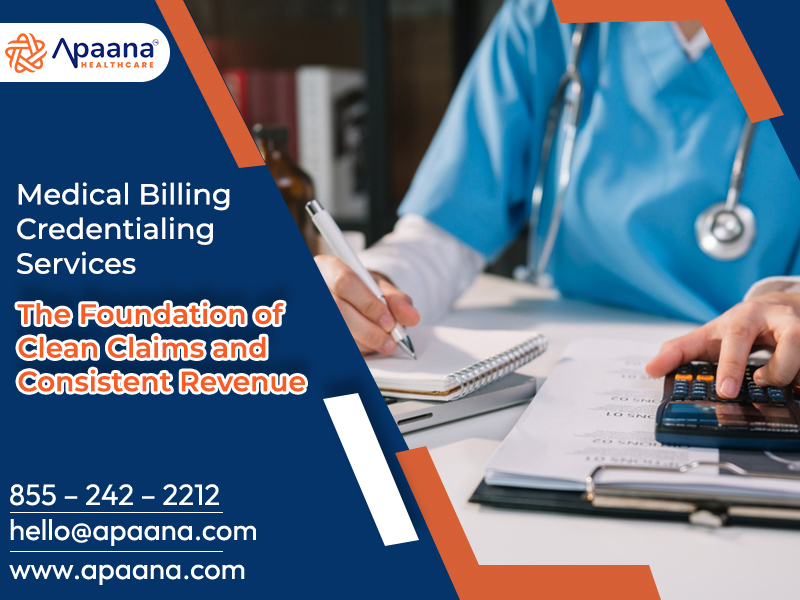In the evolving world of healthcare, effective revenue cycle management (RCM) is essential for providers to maintain financial stability, reduce operational costs, and ensure compliance with changing regulations. Revenue cycle management in healthcare encompasses every administrative and clinical function that contributes to the capture, management, and collection of patient service revenue. In a sector where patient volumes, insurance claims, and payment processes are all in constant flux, the need for a robust RCM system is clear. Implementing best practices for RCM is key to maintaining seamless operations and a strong bottom line.
This guide highlights essential practices that enhance revenue cycle management healthcare solutions, driving efficiency, reducing errors, and optimizing revenue.
1. Prioritize Accurate Patient Data Collection
One of the first steps in the RCM process involves gathering patient data accurately. Collecting complete and correct data at the time of registration minimizes errors and delays in billing and claims processing. This practice includes verifying essential information such as patient demographics, insurance coverage details, and co-pay responsibilities.
Efficient front-end data collection enables healthcare providers to initiate the billing process without delays. Additionally, advanced tools such as Electronic Health Record (EHR) systems and automated data verification software can help reduce the manual effort, allowing staff to focus on providing quality patient care.
2. Streamline the Claims Submission Process
A significant portion of revenue cycle management healthcare challenges arises from claim denials. Submitting clean claims is essential for a smooth revenue cycle, reducing the chances of denial and ensuring faster payments. This requires close attention to coding, as accurate and compliant coding practices are vital to avoid errors and maintain regulatory standards.
Investing in automated tools for claim submission and review can help detect potential errors before submission, significantly reducing denials. Implementing clear procedures for checking claims before they go out is one of the most effective ways to ensure accuracy and timeliness in revenue collection.
3. Optimize Denial Management
Despite the best efforts, claim denials are sometimes inevitable. In such cases, it’s crucial to have an efficient denial management process in place. Reviewing denied claims in a timely manner, analyzing the reasons, and taking corrective action can help recover revenue that might otherwise be lost. Developing a standardized denial management process helps in minimizing future denials and improves overall cash flow.
An analytics-based approach can help identify patterns in denials and reveal underlying issues, such as specific coding errors or information gaps. Staff should be trained to handle denial management systematically, with processes in place to track recurring issues and implement corrective action.
4. Implement Patient Financial Counseling
With high-deductible plans and growing out-of-pocket expenses, patients are now responsible for a larger share of their healthcare costs. Transparent communication with patients about their financial responsibilities is essential to minimize unpaid bills and improve collection rates. Patient financial counseling can help set clear expectations regarding the costs involved and payment options available, helping reduce bad debt and collection issues.
By providing financial counseling early in the patient encounter, healthcare providers can avoid billing surprises and increase the likelihood of payment. Setting up easy payment plans or alternative financing options may further improve patient satisfaction and reduce the risk of non-payment.
5. Invest in Staff Training and Development
Revenue cycle management healthcare functions rely heavily on skilled personnel. Training staff to understand the importance of RCM best practices, as well as regulations and guidelines, plays a crucial role in minimizing errors and improving efficiency. Regularly updating staff on changes in coding regulations, insurance policies, and payment models helps maintain accuracy and compliance.
When employees are trained to identify and address potential issues, the likelihood of costly mistakes decreases. Ongoing training programs also promote a culture of accountability and help employees stay engaged, leading to a smoother revenue cycle process and more reliable financial outcomes.
6. Leverage Technology for RCM Automation
The healthcare industry has benefited tremendously from technological advancements, especially in the field of revenue cycle management. Implementing automated solutions for various RCM tasks, including scheduling, billing, coding, and claims processing, can reduce manual errors and streamline the entire process. Technology such as Artificial Intelligence (AI) and Robotic Process Automation (RPA) enables real-time data processing and helps uncover revenue cycle inefficiencies that manual processes might miss.
Automated revenue cycle management healthcare systems also allow for better resource allocation, giving staff more time to focus on patient engagement and strategic tasks rather than repetitive administrative work.
7. Improve Patient Engagement Through Digital Platforms
Engaging patients through digital platforms can enhance their experience and help with timely payments. Offering online portals or mobile apps where patients can view their bills, understand payment responsibilities, and make payments can simplify the entire process. Digital engagement tools not only improve the patient experience but also enhance communication between providers and patients, helping to reduce billing disputes and unpaid balances.
By fostering a patient-centered approach to financial communications, healthcare providers can build trust and encourage timely payments, which positively impacts revenue cycle management.
8. Conduct Regular RCM Performance Audits
Routine performance audits are crucial for identifying areas of improvement in the revenue cycle process. Through regular audits, healthcare providers can track key performance indicators (KPIs) such as claim denial rates, average days in accounts receivable (AR), and collection rates. These metrics provide valuable insights into the efficiency of RCM operations and reveal areas that may need adjustments or improvement.
An in-depth audit of RCM processes allows providers to spot inefficiencies, errors, and revenue leaks. Continuous improvement is the hallmark of an optimized revenue cycle, and regular performance audits help in maintaining this.
9. Ensure Compliance with Regulatory Standards
Healthcare revenue cycle management must adhere to numerous regulations, including the Health Insurance Portability and Accountability Act (HIPAA) and other federal and state laws. Non-compliance can lead to severe financial penalties and affect the credibility of the healthcare provider. Regularly reviewing and updating compliance policies and conducting training sessions can help keep the entire team up-to-date with the latest regulations.
A comprehensive compliance program should also address privacy and data security concerns, as these are crucial for patient trust. Adhering to regulatory standards enhances the integrity of the revenue cycle and supports a compliant, patient-focused healthcare environment.
10. Focus on Continuous Improvement and Adaptability
Revenue cycle management in healthcare is a dynamic process that requires adaptability to evolving challenges and opportunities. Regularly evaluating the RCM process and being open to new approaches can keep healthcare providers prepared for changes in the healthcare landscape. For instance, the shift toward value-based care requires RCM systems to be flexible and capable of handling different payment models. A commitment to continuous improvement helps ensure that the RCM process remains efficient, responsive, and aligned with industry standards.
Building an RCM strategy focused on improvement and adaptability provides healthcare providers with a competitive advantage, allowing them to better meet patient needs, manage costs, and maximize revenue potential.
Apaana Healthcare: Your Partner in Efficient Revenue Cycle Management
Apaana Healthcare drives operational excellence with global healthcare management solutions tailored to meet the unique needs of health plans and providers. With expertise in outsourced services such as member enrollment, claims administration, medical billing & coding, and provider engagement, Apaana Healthcare ensures cost-effective solutions that streamline the revenue cycle for healthcare providers. Our dedicated approach to RCM empowers providers to focus on what matters most: patient care.
Choose Apaana Healthcare to unlock the potential of an optimized, resilient revenue cycle management healthcare solution. With our advanced technology, skilled teams, and unwavering commitment to compliance, we help healthcare organizations reduce costs, boost collections, and adapt to an ever-changing environment. Contact us today to experience the difference our solutions can make in your organization’s financial health and operational success.
What is revenue cycle management in healthcare?
Revenue cycle management (RCM) in healthcare refers to the administrative and clinical processes involved in capturing, managing, and collecting revenue from patient services. This includes tasks such as patient registration, coding, billing, claims submission, and payment collection.
How can healthcare providers reduce claim denials?
To reduce claim denials, providers can implement best practices such as ensuring accurate patient data collection, adhering to compliant coding practices, using automated claim review tools, and developing a robust denial management process to address issues promptly and prevent recurring errors.
Why is patient financial counseling important in RCM?
Patient financial counseling helps patients understand their financial responsibilities, such as out-of-pocket expenses, co-pays, and payment options. This transparency improves collection rates, reduces billing disputes, and minimizes unpaid bills by setting clear expectations early in the process.v
What role does technology play in revenue cycle management?
Technology enhances RCM by automating repetitive tasks like scheduling, billing, and claims processing. Advanced solutions such as Artificial Intelligence (AI) and Robotic Process Automation (RPA) reduce errors, streamline operations, and provide real-time insights to optimize revenue collection.
How can regular audits improve revenue cycle management?
Regular RCM performance audits help healthcare providers track key metrics like denial rates, average days in accounts receivable, and collection rates. These audits identify inefficiencies, revenue leaks, and areas for improvement, ensuring the RCM process remains efficient and aligned with best practices.





